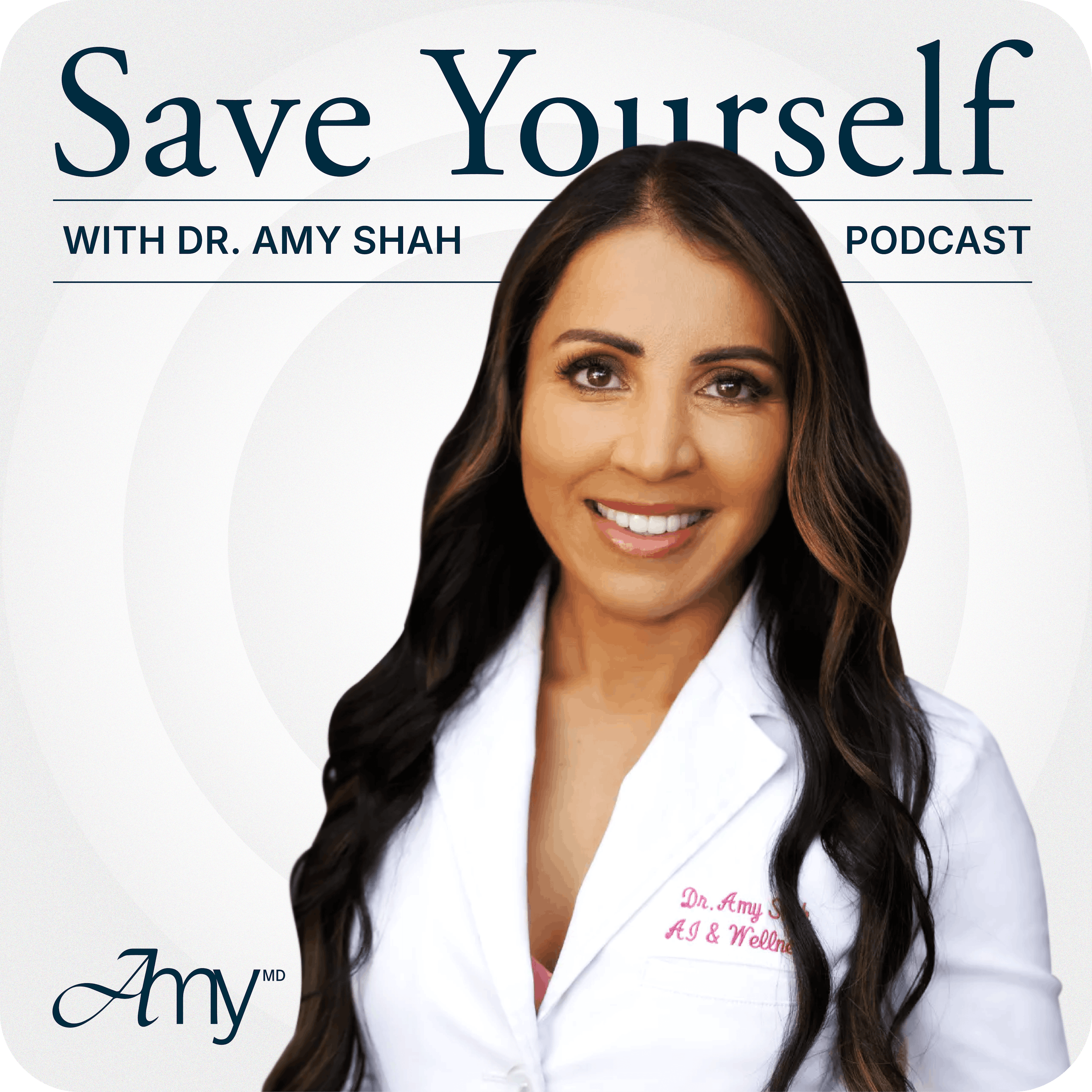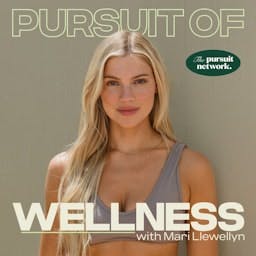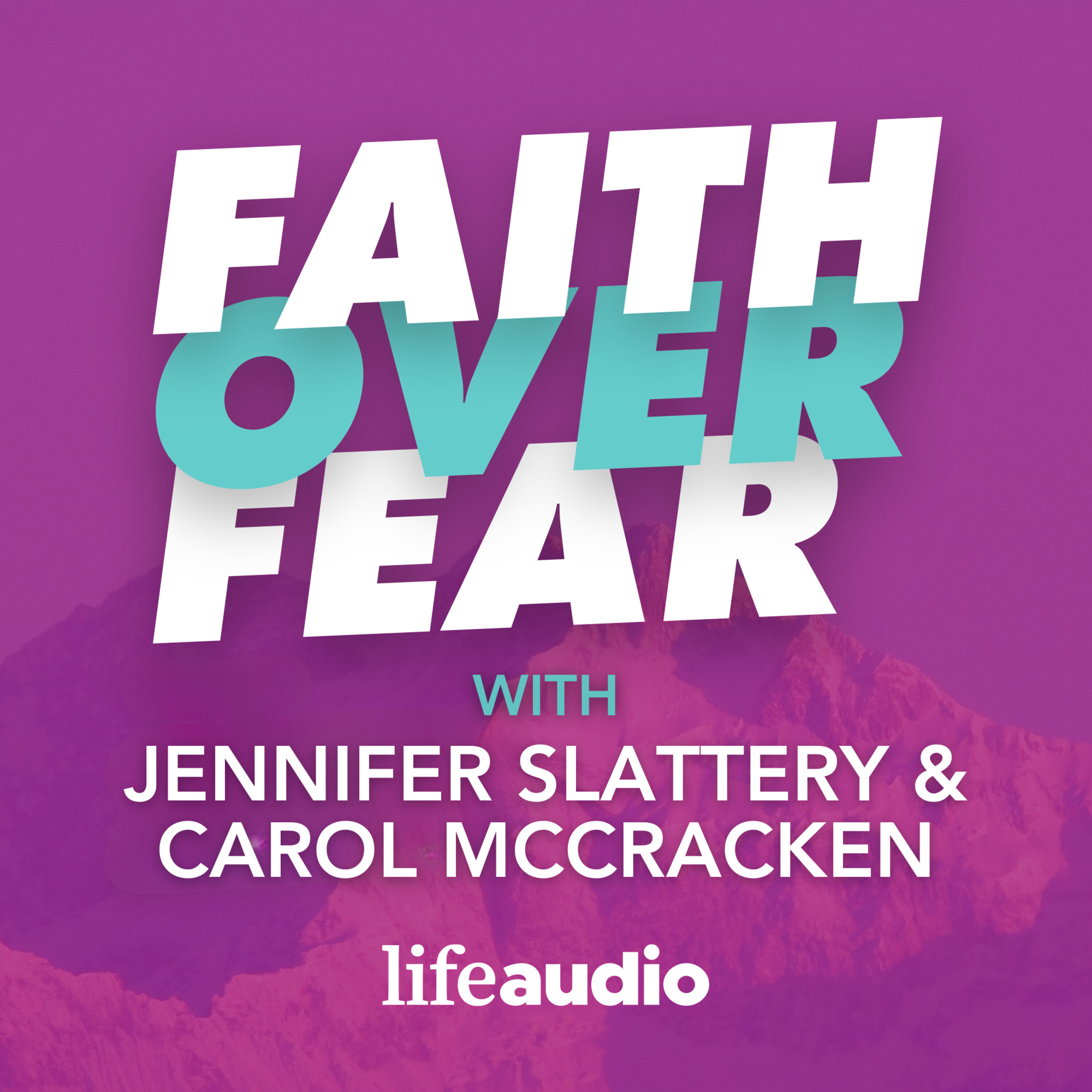.jpg)
Mindfully Integrative Show
Welcome to the Mindfully Integrative Podcast! We are dedicated to featuring inspirational and successful individuals who have embraced mindful investing to achieve optimal integrative wellness. Our podcast dives into all aspects of mindfully incorporating integrative functional health into our lives, aiming to help create a more balanced and fulfilling life. New episodes are released every Friday and cover a wide range of informative and entertaining topics, interviews, and discussions.
We explore a mindful approach to the mind-body connection with guests discussing various topics in integrative holistic health. This includes areas such as whole health, functional medicine, spiritual health, financial health, mental health, lifestyle health, mindset shifts, physical health, digital health, nutrition, gut health, sexual health, body positivity, family health, pet health, business health, and life purpose, among others.
Dr. Damaris G. is an Integrative Doctor of Nursing Practice, a Family Nurse Practitioner, a mom, and a veteran. For collaboration, interviews, or to say hi, you can contact her via email at damaris@mindfullyintegrative.com. You can also find her on LinkedIn at or https://www.linkedin.com/in/damarisdnp/. To join our membership and access resources, visit our website at https://mindfullyintegrative.com .
Please note that the information shared here is for informational and educational purposes only and should not be considered medical advice. Always consult with a physician or other licensed healthcare provider when making healthcare decisions. Enjoy the podcast!
Mindfully Integrative Show
Mindful Parenting: Mastering Stress Relief and Self-Care for You and Your Children
Unlock the secrets to becoming a more mindful parent, while mastering effective stress management techniques that will transform both your life and your children's. Imagine reducing the impact of stress hormones like cortisol by embracing techniques such as progressive muscle relaxation, guided imagery, and powerful breathing exercises. Our episode promises to guide you through these practical strategies, and also introduces the benefits of mindful eating with foods like leafy greens and omega-3-rich options known to support your overall well-being.
As we wrap up our conversation, we emphasize the importance of prioritizing your own health for the sake of your children. Simple steps like box breathing or creating a calming bedtime routine can make a significant difference. By nurturing yourself, you set a powerful example and provide a better environment for your kids. Remember, by taking care of yourself, you’re not just a better parent—you’re giving your children the greatest gift of all. Join us in this journey of self-care and mindful parenting; you've got this!
Sponsor Affiliates
Empowering Wellness Through Evidence-Based Education
Get YOUR Own
Joburg Protein Snacks
Discount Code: Damaris15 Or Damaris18
Feeling need to Lose Weight & Become metabolically Healthy
GET METABOLIC COURSE GLP 1 REseT
This course is designed for individuals looking to optimize their metabolic health through integrative and functional medicine approaches. Whether you're on a GLP-1 medication or seeking natural ways to enhance your metabolic function, this course provides actionable steps, expert insights, and a personalized roadmap sustainable wellness.
Are you feeling stressed, tired, or Metabolism imbalanced?
Take advantage of our free mindful steps to help improve your well-being.
ENJOY ONE OF our Books
Mindful Ways Health Wealth & Life
https://stan.store/Mindfullyintegrative
Join Yearly membership ALL IN O...
Hey everyone, if you're a parent, you know stress management can feel like you know, like a required course, right, right. So today we're diving deep into mindful parenting.
Speaker 2:everyday stress relief and cortisol balance, you know, help you build a personalized, stressless parenting toolkit, and this book is a great place to start because it goes beyond like just listing techniques. It really dives into the science behind stress, starting with cortisol.
Speaker 1:Okay, cortisol, the infamous, you know, stress hormone. I'm guessing it's not our friend when it comes to feeling, you know, calm and collected.
Speaker 2:Not quite See. Cortisol plays a vital role in our survival responses, but it's the prolonged elevation that, like, wreaks havoc. We're talking inflammation, a weakened immune system, even potential weight gain Not exactly what we need when juggling a family.
Speaker 1:Definitely not. I'm already feeling my shoulders kent up just thinking about it. So how do we stop this cortisol overload? What's our first tool in this stressless kit?
Speaker 2:Relaxation techniques are a great starting point, and this book dives into a few different options. One that caught my eye was progressive muscle relaxation.
Speaker 1:Progressive muscle relaxation. That sounds like intense, like something you do at a boot camp.
Speaker 2:It's actually quite the opposite. Okay, the idea is surprisingly simple but effective. You systematically tense and release different muscle groups. This helps your body recognize and release tension it might be holding without you even realizing it.
Speaker 1:So you're basically teaching your muscles to chill out.
Speaker 2:Yeah.
Speaker 1:I can get behind that. The book also mentions pairing this with guided imagery. What's that all about?
Speaker 2:Guided imagery is a fancy way of saying. You're creating calming mental images. Okay, Think of it as a mini vacation for your mind. Imagine yourself in a peaceful setting, maybe a beach, a forest or a cozy cabin in the mountains.
Speaker 1:Oh, I like where this is going. I'm already feeling calmer. But this toolkit isn't just about relaxing our bodies, right, we've got to address the mental chaos too.
Speaker 2:Absolutely, and that's where breathing techniques come in. They're like a bridge between your physical and mental states. The book highlights a few, but one that stood out to me was diaphragmatic breathing.
Speaker 1:Diaphragmatic breathing. That sounds kind of technical. Is this something I need a medical degree to understand? Muscle below your lungs to breathe more deeply.
Speaker 2:You're aiming to fill your belly with air, not just your chest. This type of breathing activates the parasympathetic nervous system, which is your body's natural relaxation response.
Speaker 1:Interesting. So by changing how we breathe we can actually signal to our bodies to relax. I'm starting to realize how much power we have over our stress response.
Speaker 2:This is great, and if you're looking for a breathing technique that feels a little more, shall we say, mystical, the book also delves into alternate nostril breathing.
Speaker 1:Alternate nostril breathing. That sounds intriguing and a little intimidating.
Speaker 2:It might sound a bit out there, but it's rooted in ancient yogic practices. But it's rooted in ancient yogic practices. The idea is that, by alternating which nostril you breathe through, you're balancing your prana, which, in this context, refers to your vital life force energy.
Speaker 1:OK, I'm always up for trying new things.
Speaker 2:Yeah.
Speaker 1:Especially if it means like tapping into my inner Zen master. But before we move on, I have to ask. We've talked about the body, We've talked about the breath. What about the role of food in all of this? Does the book offer any guidance on what to eat to combat stress?
Speaker 2:It certainly does. It emphasizes the practice of mindful eating, which goes beyond just what's on your plate. It's about bringing awareness to your meals, savoring each bite, chewing your food thoroughly and really paying attention to your hunger and fullness cues.
Speaker 1:Mindful eating. That makes a lot of sense. It's so easy to get caught up in like the chaos of the day and just scarf down whatever's in front of us without even really you know tasting it.
Speaker 2:Exactly, and when we do that, we miss out on the opportunity to truly nourish ourselves, both physically and mentally. Plus, when we're more attuned to our hunger cues, we're less likely to reach for those sugary processed foods that can actually, like, spike our cortisol levels.
Speaker 1:It's like a double whammy. Mindful eating helps us avoid the things that stress us out and savor the things that, like, support our well-being. Speaking of which, are there specific foods this book recommends for stress management?
Speaker 2:You bet Remember how we talked about how prolonged high cortisol can like wreak havoc on our bodies.
Speaker 1:Right.
Speaker 2:Well, this book dives into foods that can actually help counteract those negative effects.
Speaker 1:Okay, I'm all ears. What are we adding to our grocery list?
Speaker 2:Well, leafy greens are a great place to start. They're not just packed with vitamins and minerals, they're also a good source of magnesium.
Speaker 1:Magnesium Wait, doesn't that mineral help with sleep? I feel like I'm always hearing about magnesium supplements, for you know, better sleep.
Speaker 2:You're right, magnesium plays a crucial role in sleep regulation, and it's also been linked to lower cortisol levels.
Speaker 1:Fascinating. So a big plate of spinach for dinner equals a calmer mind and a better night's sleep. And get behind that. What else can we add to this stress busting menu?
Speaker 2:This book highlights the importance of omega-3 fatty acids for brain health and stress management. Okay, Think fatty fish like salmon, walnuts, chia seeds all those delicious good-for-you foods.
Speaker 1:So basically, we're swapping those sugary processed snacks for a delicious spread of brain-boosting, stress-busting goodies. I can definitely get behind that, but let's talk about something that's not exactly food-related but definitely impacts our stress levels Sleep, or the lack thereof. What kind of sleep strategies does this book offer?
Speaker 2:Well. It emphasizes the importance of relaxing bedtime routine. Consistency is key. It also encourages us to create a sleep sanctuary.
Speaker 1:A sleep sanctuary. I love the sound of that. What exactly does that entail?
Speaker 2:It's about transforming your bedroom into a calming, clutter-free haven that signals to your body and mind that it's time to unwind. Think blackout curtains, a cool room, comfy bedding and maybe even a diffuser with some calming essential oils like lavender.
Speaker 1:Okay, I'm taking notes. I'm already feeling more relaxed, just picturing it. But what about those nights when, even with a perfectly optimized sleep environment, our minds just won't stop racing?
Speaker 2:That's where those natural sleep aids can come in handy. The book mentions herbal options like valerian root, chamomile which we already mentioned for tea and passionflower. There are also supplements like magnesium, which can be incredibly helpful for sleep, and melatonin, which can help regulate your sleep-wake cycle.
Speaker 1:It's amazing how many natural options there are for supporting restful sleep. But this book isn't just about individual techniques, right, it's about a bigger picture approach to managing stress as a parent.
Speaker 2:Absolutely. It dives into the power of routine, specifically meal planning. Okay, and I know it might not sound as glamorous as a sleep sanctuary or a magiker, but trust me on this one.
Speaker 1:Okay, I'm intrigued how exactly does meal planning fit into this stressless parenting toolkit?
Speaker 2:It's about being proactive. When you have a plan for what you're going to eat, you're less likely to make like impulsive, not-so-healthy choices when you're tired and stressed.
Speaker 1:That makes a lot of sense. Tired and stressed that makes a lot of sense. When you're juggling work, kids and everything in between, the last thing you want to do is stare blankly into the fridge at 7 pm wondering what to make for dinner.
Speaker 2:Exactly. Meal planning takes the guesswork out of meal times and can help you feel more in control of your day, and when you feel more in control, you're less likely to, you know, feel stressed.
Speaker 1:So meal prepping is essentially self-care, disguised as like a to-do list item. Brilliant, but let's circle back to mindfulness. We've talked about mindful eating, but what about other types of mindfulness practices?
Speaker 2:This book dives into mindfulness meditation and emphasizes it as a powerful tool for calming the mind and like managing those racing thoughts that tend to plague us as parents.
Speaker 1:Oh, tell me about it. Those racing thoughts are like a never-ending to-do list on repeat.
Speaker 2:Exactly. Mindfulness meditation helps you observe those thoughts without getting swept away by them, which can be incredibly powerful in, you know, reducing stress.
Speaker 1:It's like hitting the pause button on those spiraling mental to-do lists. Yeah, what else does this book recommend in terms of, like building a mindful parenting practice?
Speaker 2:One thing that stood out to me was the emphasis on gratitude. Okay, it sounds simple, but taking the time to acknowledge and appreciate the good things in our lives, even amidst the chaos, can significantly impact our stress levels.
Speaker 1:I love that. It's about shifting our perspective from what's stressing us out to what's actually going well. It's like choosing to focus on the silver linings instead of the storm clouds. But let's be real even with the best intentions, there are going to be days when stress gets the best of us. What does this book offer for those moments when we need a quick reset?
Speaker 2:I'm so glad you asked. Remember how we talked about the power of breathing techniques earlier? Well, this book introduces a technique called box breathing.
Speaker 1:Okay.
Speaker 2:And it's incredibly effective for you know calming down quickly when you're feeling overwhelmed.
Speaker 1:Box breathing. That sounds interesting. I've never heard of that one before. How does it work?
Speaker 2:It's super simple you inhale for a count of four, hold your breath for a count of four, exhale for a count of four and then hold your breath again for a count of four.
Speaker 1:With each breath. That's brilliant. I can see how that would be grounding, especially in moments of like panic or stress. I'm definitely adding that to my stressless parenting toolkit.
Speaker 2:It's a game changer, for sure, and the best part is you can do it anytime, anywhere, no special equipment needed.
Speaker 1:OK, we've covered a lot of ground here, from mindful eating and sleep sanctuaries to box breathing and gratitude practices. It's clear that this book is all about a holistic approach to stress management.
Speaker 2:Absolutely. It's about equipping parents with a toolkit of practical strategies they can implement in their daily lives to create more peace, balance and joy.
Speaker 1:And speaking of joy, I can't believe we're almost out of time and haven't even gotten to the part that has me the most excited. You know what I'm talking about right, I think I do.
Speaker 2:You're talking about that intriguing cortisol balance drink recipe, aren't you? You read my mind.
Speaker 1:I'm dying to know what's in this magical concoction, but I guess we'll have to save that for the grand finale of our deep dive. Welcome back everyone. We've explored like a treasure troves of techniques for managing stress and keeping those cortisol levels in check. But now for the grand finale, the moment you've all been waiting for.
Speaker 2:Let's unveil the secrets of this cortisol balanced drink recipe. I have to admit I was a little skeptical at first, but this drink is more than just a, you know, trendy elixir. It actually incorporates several ingredients known for their like like stress-reducing properties.
Speaker 1:Okay, you've piqued my curiosity. Let's break it down Ingredient by ingredient. What's the base of this? You know magical concoction.
Speaker 2:The recipe starts with a cup of warm almond milk or any plant-based milk you prefer.
Speaker 1:Plant-based milk always a good choice. It's gentle on the stomach and, you know, naturally calming what's next.
Speaker 2:Now for the star of the show a teaspoon of ashwagandha powder.
Speaker 1:Ashwagandha We've already talked about this amazing adaptogenic herb and how it helps our bodies handle stress. It's like a superpower for your adrenals.
Speaker 2:Precisely, and to boost the anti-inflammatory power, we're adding a half a teaspoon of turmeric powder.
Speaker 1:Turmeric another powerhouse, yeah, I add it to everything. These days it's like nature's like you know. Another powerhouse yeah, I add it to everything these days.
Speaker 2:It's, like nature's, like you know, anti-inflammatory Exactly. It's known for its like vibrant color and potent antioxidant properties. Then, for that warm, comforting flavor, we add half a teaspoon each of cinnamon and ginger powder.
Speaker 1:Cinnamon and ginger. This is starting to sound like a delicious, like autumn drink. Both of those spices are known for their like soothing properties too.
Speaker 2:Absolutely. And here's a fun fact Did you know that a pinch of black pepper can actually enhance the bioavailability of turmeric?
Speaker 1:Wait, really. So not only does it add a little something extra to the flavor, but it also helps our bodies absorb all those amazing benefits from the turmeric. I love when flavor meets function.
Speaker 2:Me too.
Speaker 1:And if you'd like to add a touch of sweetness, the recipe suggests a teaspoon of raw honey.
Speaker 2:Raw honey a natural sweetener packed with antioxidants. What's not to love? And finally, to round out the flavor profile, a quarter teaspoon of vanilla extract adds a like, lovely touch.
Speaker 1:Vanilla extract, the final touch of magic. This sounds absolutely incredible. I'm definitely adding this to my like self-care routine.
Speaker 2:I might have to join you. It's the perfect drink to like unwind with at the end of a long day.
Speaker 1:It really does sound like a delicious ritual for relaxation, but even with a magical you know cortisol balancing drink in hand, it's important to remember that true stress management is about more than just, you know, quick fixes. It's about making sustainable changes to how we approach our lives as parents.
Speaker 2:You're absolutely right. It's about cultivating those daily habits and practices that support our well-being mindful eating, quality sleep, movement, connection all those things that nourish us on a deeper level.
Speaker 1:It's about shifting our mindset from like surviving to thriving, even amidst the beautiful chaos of raising a family.
Speaker 2:I love that. Thriving, not just surviving, that's a powerful mantra for all of us, parents or not.
Speaker 1:It really is. So, as we wrap up this deep dive into mindful parenting, everyday stress relief and cortisol balance, we want to leave you with one final thought.
Speaker 2:A thought to inspire you to take action, even if it's just one small step today.
Speaker 1:What one thing can you do today to prioritize your well-being as a parent?
Speaker 2:Maybe it's trying that box breathing technique. We discussed, whipping up a batch of that delicious cortisol balance drink or simply setting aside five minutes to close your eyes and just breathe.
Speaker 1:Whatever it is, make that commitment to yourself, because when you prioritize your well-being, you're not just filling your own cup, you're overflowing into the lives of your children.
Speaker 2:And that's the greatest gift we can give them.
Speaker 1:Beautifully said. Thank you all for joining us on this deep dive. Until next time, take care of yourselves and remember you've got this.















